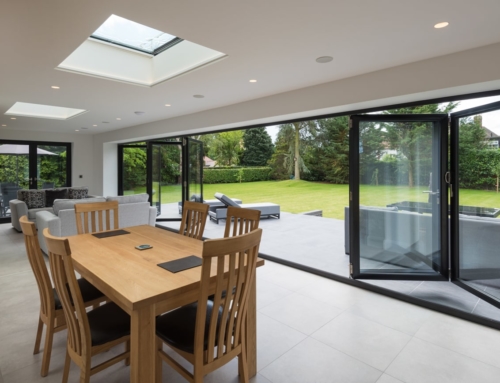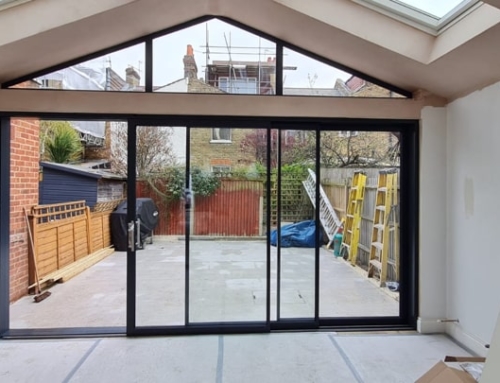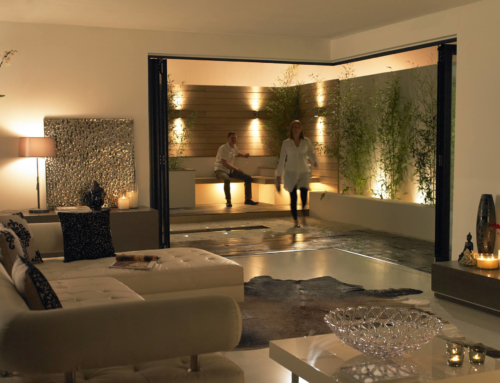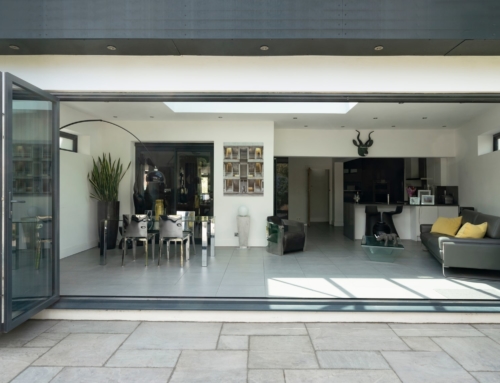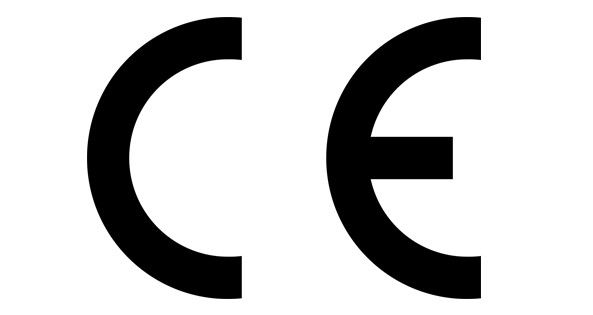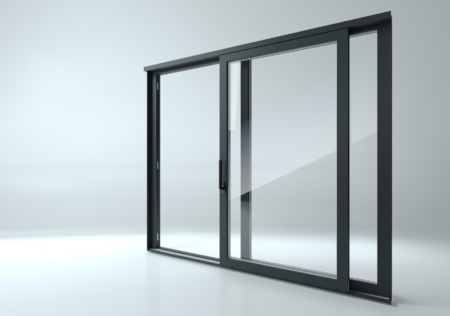
Sliding doors come with a multitude of benefits, beloved in both modern and traditional UK homes for their beautiful designs while providing seamless transitions between indoors and out.
When it comes to choosing the right material for your new sliding doors, the differences between uPVC and aluminium doors may not be obvious to those not in the industry, so delving further into the design options will quickly show what each material has to offer.
Here’s our expert advice for choosing the right sliding doors for you.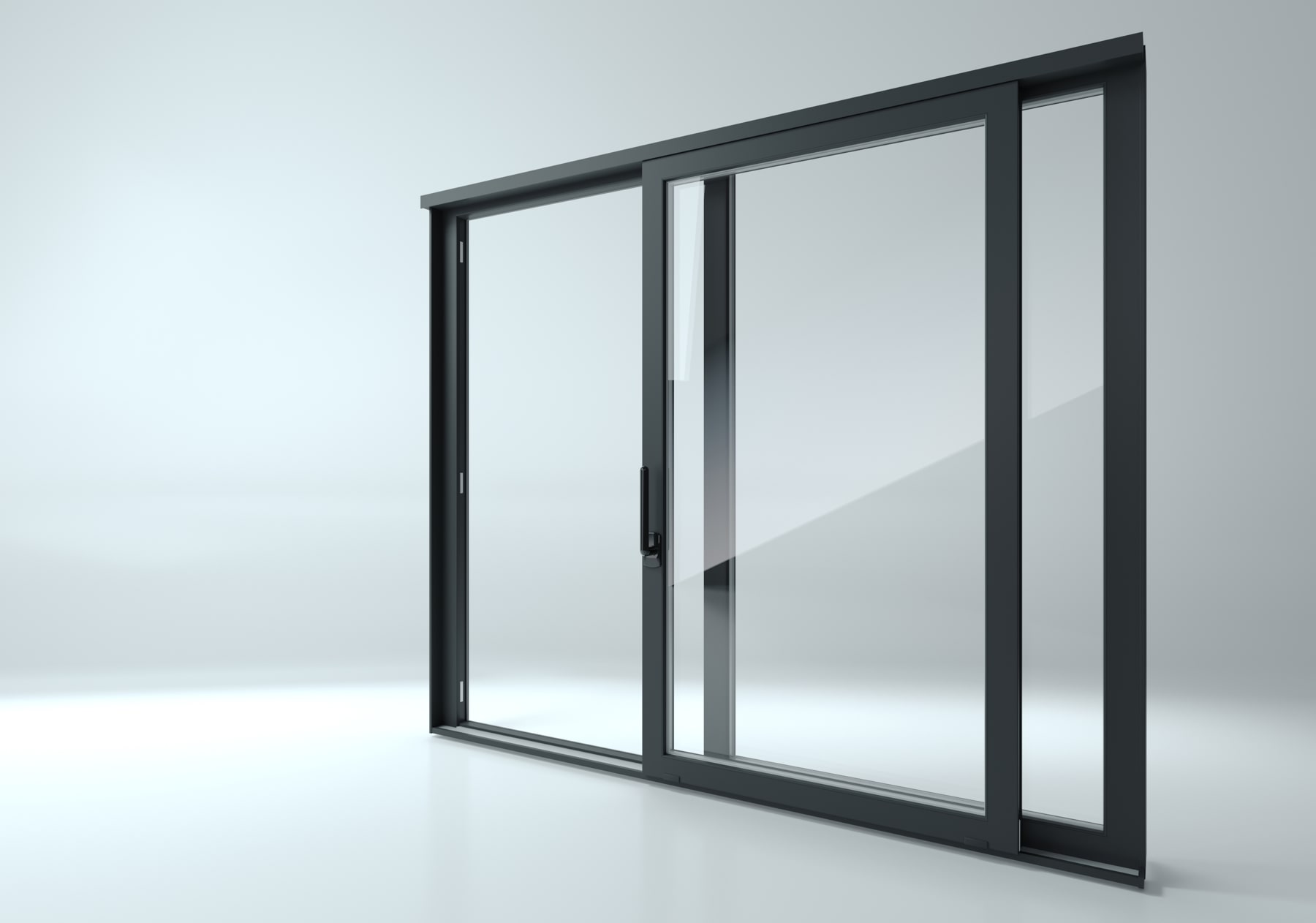
What’s the difference between uPVC and aluminium doors?
UPVC and aluminium are both popular choices for window and door frames, but there are differences between the two. UPVC stands for ‘unplasticised polyvinyl chloride’ and is renowned for being strong, low-maintenance and affordable. However, the frames are often much bulkier and have a shorter lifespan than aluminium products.
Aluminium windows and doors have been making waves for their strength and durability, holding expansive glass panes for an ultra-modern look. They often have much slimmer frames than uPVC, allowing for maximum natural sunlight and expansive views of the outdoors.
Why is aluminium best for sliding doors?
Aluminium is a highly popular choice for sliding doors, renowned for its sleek and modern appearance while having slimline frames to maximise views. Aluminium is inherently strong and durable, allowing for larger and more expansive glass panels without compromising structural integrity.
Aluminium is resistant to harsh weather conditions, and the door frames can be powder-coated for a wide range of colours and finishes, allowing you to achieve a custom look that aligns with your design preferences.
Are there downsides of uPVC for sliding doors?
UPVC doors are sometimes more budget-friendly than their aluminium counterparts, making them an attractive option for cost-conscious homeowners. However, the quality, longevity and low-maintenance requirements of aluminium may result in a better investment overall.
As uPVC is lighter, it’s less robust than aluminium, limiting the sizing of the sliding door profiles that this material can achieve. It may also require additional reinforcements and bulkier frames, giving the doors a less modern appearance, especially in larger openings. That’s why many homeowners choose aluminium doors for a sleek and contemporary appearance.
Which sliding doors should you choose?
Both uPVC and aluminium sliding doors come in a variety of colours and woodgrain finishes, allowing you to match your home’s aesthetic. Ultimately, the choice between UPVC and aluminium depends on your priorities. There are many crossover benefits between the two products, but if you value a sleek, modern aesthetic, longevity, and the ability to incorporate larger glass panels, aluminium sliding doors are more suitable.
Both materials have their unique advantages, so assess your specific needs, budget and design preferences when making a decision. Consulting with professional door suppliers can provide valuable insights to help you choose the best sliding doors to enhance the functionality and aesthetics of your home.
Looking for an aluminium sliding door expert? Call our team
At YPE Bifold Doors, we have a stunning range of products for you to consider, including Origin sliding doors. Located in Sutton, we cover most of Surrey and London, including Purley and Reigate.
For a free quote, contact us today.



